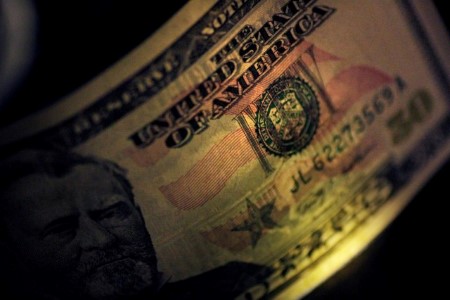




Monthly Economic Update: Fed cuts incoming
 DOWNLOAD
DOWNLOAD

Consensus Pricing – June 2025
 DOWNLOAD
DOWNLOAD

Policy Rate Update: Dovish BSP Narrows IRD
 DOWNLOAD
DOWNLOAD


TOP SEARCHES
Dollar rebounds as traders rethink Fed rate cut expectations

SINGAPORE, Jan 4 – The dollar edged higher on Thursday as investors reassessed their expectations of the scale of rate cuts by the Federal Reserve this year, with an air of caution hanging over markets after an impressive risk rally last month.
The greenback was on the front foot in early deals in Asia, as trading returned to full swing with Japan back from an extended New Year break.
Against the yen, the dollar stood near a two-week peak and last bought 143.09 yen, having jumped more than 0.9% against the Japanese currency in the previous session, its best day since October.
The Australian dollar, often used as a proxy for risk appetite, languished near Wednesday’s two-week low of USD 0.6703 and last bought USD 0.6734.
The risk-sensitive New Zealand dollar similarly changed hands at USD 0.6249, near its weakest level in two weeks.
Minutes of the Fed’s December policy meeting released on Wednesday showed officials were convinced that inflation was coming under control and were concerned about the risks of the central bank’s “overly restrictive” monetary policy on the economy.
However, there were no clear-cut clues on when the Fed could begin easing rates, with policymakers still seeing a need for rates to stay restrictive for some time.
“The messaging that rates will stay elevated raises a second look at the aggressive cut expectations markets are pricing,” said Christopher Wong, a currency strategist at OCBC.
“Global growth concerns, risk-off sentiment in US equities and markets partially unwinding some of their aggressive bets on Fed cuts are some of (the) factors driving the U.S dollar rebound so far.”
Against a basket of currencies, the greenback rose 0.06% to 102.46, flirting with a three-week peak of 102.73 hit in the previous session.
The euro eased 0.02% to USD 1.0921, while sterling edged 0.05% higher to USD 1.2669 but remained pinned near its recent three-week low.
Separate data out on Wednesday showed US manufacturing contracted further in December, though the pace of decline slowed, while US job openings fell for the third straight month in November, pointing to easing labor market conditions.
Recent data pointing to a cooling US economy have continued to underpin bets of Fed rate cuts this year as inflation comes under control.
However, rising expectations of a soft-landing scenario in the world’s largest economy have left traders divided over the pace and scale of easing from the US central bank.
Market pricing now shows a roughly 72% chance that the Fed could begin cutting rates in March, compared with a 90% chance a week ago, according to the CME FedWatch tool.
The closely-watched US nonfarm payrolls report is due on Friday, which will likely give further clarity on how much room the Fed has to lower rates.
In geopolitics, Hezbollah in Lebanon and the Israeli army made statements suggesting the two avowed enemies wanted to avoid risking the further spread of war beyond the Gaza Strip, after a drone strike killed a Palestinian Hamas deputy leader in Beirut.
(Reporting by Rae Wee; Editing by Shri Navaratnam)
This article originally appeared on reuters.com





 By Reuters
By Reuters